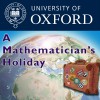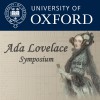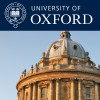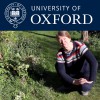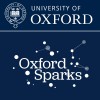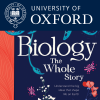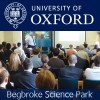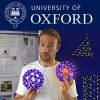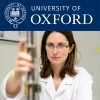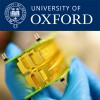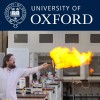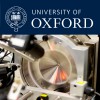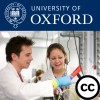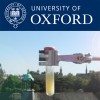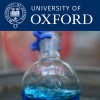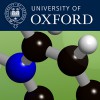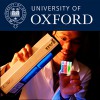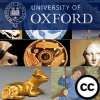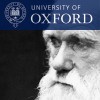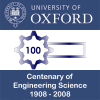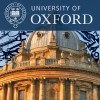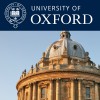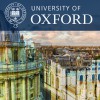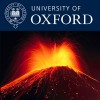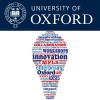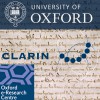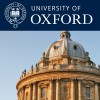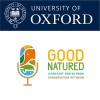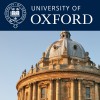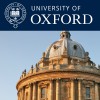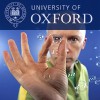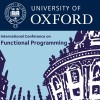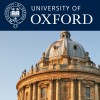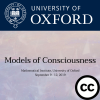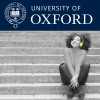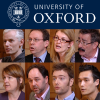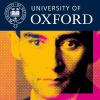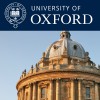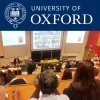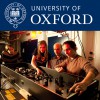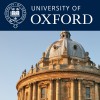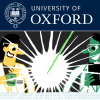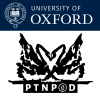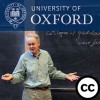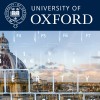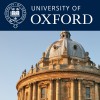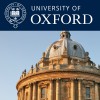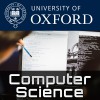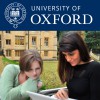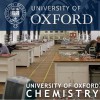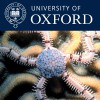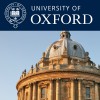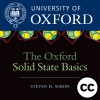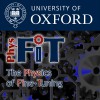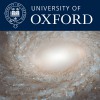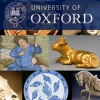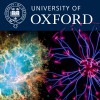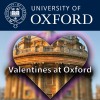Mathematical, Physical and Life Sciences (MPLS)

Relevant Links
The Mathematical, Physical and Life Sciences (MPLS) Division is one of the four academic divisions of the University of Oxford. We have over 6,000 students and research staff, and generate over half of our funding from external research grants.
The MPLS Division's 10 departments and 3 interdisciplinary units span the full spectrum of the mathematical, computational, physical, engineering and life sciences, and undertake both fundamental research and cutting-edge applied work. Our research addresses major societal and technological challenges and is increasingly interdisciplinary in nature. We collaborate closely with colleagues in Oxford across the medical sciences, social sciences and humanities.
Today's scientific research not only crosses traditional subject boundaries, but also transcends national boundaries: MPLS scientists collaborate with researchers from around the world, and play leading roles in many international projects.
Series associated with Mathematical, Physical and Life Sciences (MPLS)
| # | Episode Title | Description | People | Date | |
|---|---|---|---|---|---|
| 757 | Importance of statistical power for cumulative science | Richard Morey (Cardiff University) gives a talk for the Oxford Reproducibility School. | Richard Morey | 08 Dec 2017 | |
| 756 | Making student projects meaningful through collaboration | Kate Button (University of Bath) gives a talk for the Oxford Reproducibility School. | Kate Button | 08 Dec 2017 | |
| 755 | The pharmaceutical industry believes that a lot of academic literature is not reproducible. How should we respond? | Chas Bountra (University of Oxford) gives a talk for the Oxford Reproducibility School. | Chas Bountra | 08 Dec 2017 | |
| 754 | An agenda for reproducible science | Marcus Munafo (University of Bristol) gives a talk for the Oxford Reproducibility School. | Marcus Munafo | 08 Dec 2017 | |
| 753 | Creative Commons | Super 8 Languages for Making Movies (Functional Pearl) | Leif Andersen (Northeastern University, USA) gives the first presentation in the first panel, Art and Education, in the ICFP 2017 conference. | Leif Andersen | 07 Dec 2017 |
| 752 | Oxford Mathematics London Public Lecture - Andrew Wiles | In the first Oxford Mathematics London Public Lecture, in partnership with the Science Museum, world-renowned mathematician Andrew Wiles lectured on his current work around Elliptic Curves followed by conversation with Hannah Fry. | Andrew Wiles, Martin Bridson, Mary Archer, Hannah Fry | 06 Dec 2017 | |
| 751 | Creative Commons | Compositional Creativity: Some Principles for Talking to Computers | Chris Martens (North Carolina State University, United States) gives the first talk in the ICFP conference. | Chris Martens | 05 Dec 2017 |
| 750 | Where have all the cicada’s gone? | In this episode for the Big Questions podcast we went to the New Forest and met up with Professor Alex Rogers, from the department of Computer Sciences from the University of Oxford, to ask: Where have all the cicada’s gone? | Alex Rogers | 27 Nov 2017 | |
| 749 | The State of the Universe | Our Universe was created in 'The Big Bang' and has been expanding ever since. Professor Schmidt describes the vital statistics of the Universe, and tries to make sense of the Universe's past, present, and future. | Brian Schmidt | 20 Nov 2017 | |
| 748 | The Seduction of Curves: The Lines of Beauty That Connect Mathematics, Art and The Nude - Allan McRobie | Allan McRobie explains how the key to understanding the language of curves is Rene Thom’s Catastrophe Theory, and how remarkably the best place to learn that language is perhaps in the life drawing class. | Allan McRobie | 16 Nov 2017 | |
| 747 | Maths v Disease - Julia Gog | Can mathematics really help us in our fight against infectious disease? Join Julia Gog as we explore exciting current research areas where mathematics is being used to study pandemics, viruses and everything in between. | Julia Gog | 13 Nov 2017 | |
| 746 | How do you run a marathon with two kids? | Last month Jessica attempted to break a world record for pushing a double buggy, with two children inside, while running a marathon! | Jessica Bruce | 08 Nov 2017 | |
| 745 | Superfluids in Flatland: Topology, Defects, and the 2016 Nobel Prize | In this talk, Siddharth Parameswaran discusses how a topological approach to 2D systems reveal that they can indeed become superfluid, and lead to surprising and beautiful universal results whose implications continue to resonate today. | Siddharth Parameswaran | 03 Nov 2017 | |
| 744 | Quantum mechanics on the human scale | Stephen Blundell reviews a theory of superconductivity that was developed in Oxford in the 1930’s by Fritz London. | Stephen Blundell | 03 Nov 2017 | |
| 743 | From Identical Particles to Frictionless Flow | John Chalker discusses how the laws of quantum mechanics lead us from the microscopic world to macroscopic phenomena. | John Chalker | 03 Nov 2017 | |
| 742 | Superconductors: Miracle Materials | An introduction to the fascinating world of superconductors and the many surprising phenomena they exhibit, from zero resistance to quantum levitation. | Andrew Boothroyd | 25 Oct 2017 | |
| 741 | Quantum physics and the nature of computing | How can we test a quantum computer? An exploration of some of the theoretical puzzles of this field and how we can investigate them with experimental physics. | Jelmer Renema | 25 Oct 2017 | |
| 740 | Superconductors: why it’s cool to be repulsive | A family-friendly demonstration of superconductors in action. Fran explores the low temperatures we need to make them work, and how we can use superconductors for levitating trains. | Fran Kirschner | 25 Oct 2017 | |
| 739 | Closing the Gap: the quest to understand prime numbers - Vicky Neale | Prime numbers have intrigued, inspired and infuriated mathematicians for millennia and yet mathematicians' difficulty with answering simple questions about them reveals their depth and subtlety. | Vicky Neale | 24 Oct 2017 | |
| 738 | Cassini-Huygens: Space Odyssey to Saturn and Titan | Public Lecture organised by the Aeronautical Society of Oxford in conjunction with the Department of Physics. | David Southwood | 18 Oct 2017 | |
| 737 | Marsquakes | A song about the quest to hear Marsquakes based on research by Dr Neil Bowles at the University of Oxford | Neil Bowles | 16 Oct 2017 | |
| 736 | Understanding Misunderstanding | A song about the parallels of fake news today and satire in the 18th Century based on research by Prof Abigail Williams at the University of Oxford | Abigail Williams | 16 Oct 2017 | |
| 735 | The Great Vape Debate | A song about vaping based on the latest evidence from research, from Dr Jamie Hartmann-Boyce at the University of Oxford | Jamie Hartmann-Boyce | 16 Oct 2017 | |
| 734 | Stomach is the Monarch | A song about how Victorians saw the conversation between the gut and mood, based on research by Dr Emilie Taylor-Brown at the University of Oxford | Emilie Taylor-Brown | 16 Oct 2017 | |
| 733 | Use the Digital to Make the World you Want to See | A song about mapping the internet and how it links to our physical world, based on research by Prof Mark Graham at the University of Oxford. | Mark Graham | 16 Oct 2017 | |
| 732 | The Jenkin Lecture - Metamaterials: beyond conventional | Professor Ekaterina Shamonina delivers the 2017 Jenkin Lecture. | Ekaterina Shamonina | 04 Oct 2017 | |
| 731 | Creative Commons | Nanomaterilas in Revolutionising Diabetes Diagnostics | Sam Attias, Winner of the OEA 4th Year Project Presentation Prize gives a talk on his 4th year research project on the application of nanomaterials as a potential non-invasive diagnostic and monitoring method for type-1 diabetes. | Sam Attias | 04 Oct 2017 |
| 730 | Update on 2020 Vision | After three years as Head of Department, Lionel Tarassenko gives an update on progress towards the 2020 Vision for the Department. | Lionel Tarassenko | 04 Oct 2017 | |
| 729 | The enzymology of thiamin (vitamin B1) metabolism: biosynthesis, degradation and a thiamin-based antimetabolite. | Professor Tadhg Begley, Texas A and M University delivers the 2017 Newton Abraham Lecture. | Tadhg Begley, Rajesh Thakker | 19 Sep 2017 | |
| 728 | Creative Commons | Chaperone Contracts for Higher-Order Sessions | Hernan Melgratti (University of Buenos Aires, Argentina), gives the first talk in the third panel, Contracts and Sessions, on the 3rd day of the ICFP conference. | Hernan Melgratti | 14 Sep 2017 |
| 727 | How fast is Greenland moving? | Greenland has some many fascinating facts like it’s the world's largest island, it belongs to Denmark, it actually isn’t that green but mostly covered in ice. But did you know that Greenland is actually on the move? | Ian Hewitt | 31 Aug 2017 | |
| 726 | Lovelace Lecture: Learning and Efficiency of Outcomes in Games | Éva Tardos, Department of Computer Science, Cornell University, gives the 2017 Ada Lovelace Lecture on 6th June 2017. | Éva Tardos, Leslie Goldberg | 22 Aug 2017 | |
| 725 | The Law of the Few - Sanjeev Goyal | The study of networks offers a fruitful approach to understanding human behaviour. Sanjeev Goyal is one of its pioneers. In this lecture Sanjeev presents a puzzle: | Sanjeev Goyal | 04 Jul 2017 | |
| 724 | Observation of the mergers of binary black holes: The opening of gravitational wave astronomy | The 2017 Halley Lecture 7th June 2017 delivered by Professor Rainer Weiss, MIT on behalf of the LIGO Scientific Collaboration | Rainer Weiss | 27 Jun 2017 | |
| 723 | Ghost Imaging with Quantum Light | Physics Colloquium 26th May 2017 delivered by Professor Miles Padgett, University of Glasgow | Miles Padgett | 27 Jun 2017 | |
| 722 | Pulsars and Extreme Physics - A 50th Anniversary | Physics Colloquium 5th May 2017 delivered by Dame Professor Jocelyn Bell Burnell | Jocelyn Bell Burnell | 27 Jun 2017 | |
| 721 | Starquakes Expose Stellar Heartbeats | The 14th Hintze Biannual Lecture 4th May 2017 delivered by Professor Conny Aerts - Director, Institute of Astronomy KU Leuven | Connie Aerts | 27 Jun 2017 | |
| 720 | What are types for? | Types in programming languages are commonly thought of as a way of preventing certain bad things from happening, such as multiplying a number by a string. | Jeremy Gibbons | 26 Jun 2017 | |
| 719 | Parametric Polymorphism and models of storage | In this presentation, Uday brings together two strands of Christopher Strachey’s thought: parametric polymorphism and abstract models of storage. | Uday Reddy | 26 Jun 2017 | |
| 718 | Probabilistic Programming | Hongseok begins by talking about a program of Strachey’s that wrote “love letters” using the Manchester University computer. He then uses this as a lead in for discussing probabilistic methods of generating algorithms and programs. | Hongseok Yang | 26 Jun 2017 | |
| 717 | Christopher Strachey, First-Class Citizen | Philip reviews Christopher Strachey’s influence on modern-day functional programming languages. | Philip Wadler | 26 Jun 2017 | |
| 716 | A modelling language approach to defining mathematical structures via semantics | In this talk, Jane presents about her work on modelling dynamic behaviour of systems using quantative modelling techniques. Particular kinds of modelling diagrams are used and a mathematical approach to looking at their meaning is presented. | Jane Hillston | 26 Jun 2017 | |
| 715 | Greetings to the participants at “Strachey 100” | The logician Dana Scott played a crucial part in the story of denotational semantics, working for a term with Christopher Strachey in Autumn 1969, when he created a mathematical model for the foundation of the method. | Dana Scott | 26 Jun 2017 | |
| 714 | Strachey: school master, language designer, colleague | In this panel discussion, three people who knew Christopher Strachey in different contexts talk about their memories of him. | Roger Penrose, Michael Jackson, David Hartley | 26 Jun 2017 | |
| 713 | Semantic relationships: reducing the separation between practice and theory | Christopher Strachey believed that the gap between theory and practice was impeding the development of computing science. | Robert Milne | 26 Jun 2017 | |
| 712 | SIS, a semantics implementation system | During Peter’s DPhil studies, supervised by Christopher Strachey, he developed a prototype of a system for executing programs based on their denotational semantics. | Peter Mosses | 26 Jun 2017 | |
| 711 | Strachey and the development of CPL | Chrisopher Strachey was the most significant contributor to the design and implementation of the programming language CPL. | Martin Richards | 26 Jun 2017 | |
| 710 | Strachey and the Oxford Programming Research Group | Christopher Strachey’s right-hand man at Oxford talks about Strachey’s time as the head of the Programming Research Group (PRG). | Joe Stoy | 26 Jun 2017 | |
| 709 | Strachey: the Bloomsbury Years | A historian’s perspective on the earlier years of Christopher Strachey’s life. The talk covers his familial connections, his early career as a school master, and his first computing projects. | Martin Campbell-Kelly | 26 Jun 2017 | |
| 708 | Strachey Lecture: Computer Agents that Interact Proficiently with People | Professor Kraus will show how combining machine learning techniques for human modelling, human behavioural models, formal decision-making and game theory approaches enables agents to interact well with people. | Sarit Kraus | 23 Jun 2017 | |
| 707 | Should I take a selfie with a wild animal? | Travel companies around the world profit from some of the cruellest types of wildlife tourist attractions on earth. | Tom Moorhouse | 02 Jun 2017 | |
| 706 | What does Hollywood get right and wrong when science is in the storyline? | What does hollywood get right? | Neil Ashton, Colin Wilson, Eleanor Stride, Jason Nurse | 02 Jun 2017 | |
| 705 | How open should open data be? | Open data impacts everybody. Through it we can access healthcare services, understand our governments better and, of course, travel to places more easily. But, how open should open data be? | Sir Nigel Shadbolt | 02 Jun 2017 | |
| 704 | The Sound of Symmetry - Marcus du Sautoy | Symmetry has played a role both for composers and in the creation of musical instruments. | Marcus du Sautoy | 24 May 2017 | |
| 703 | Creative Commons | Will future communications technologies lead to cyber wars or a better world? | Communications technology has enabled massive social change over the past decades. However, the many benefits that we enjoy are accompanied by challenges - cyber security, inadequate coverage, the ease of spreading fake news, | Naomi Climer | 22 May 2017 |
| 702 | Creative Commons | Wireless Communications Using Light | In this lecture, Dominic O'Brien introduces the field, the challenges, and the promise for the future of this area of research. | Dominic O'Brien | 22 May 2017 |
| 701 | Creative Commons | Network Complexity and the Internet of Things | In this talk, Justin Coon explores the issue of complexity in the IoT from a fundamental perspective and provide some insight into what this means for practical deployments in the future. | Justin Coon | 22 May 2017 |
| 700 | Lecture 6: Bioinspired Colloidal Assembly: From Photonics to Encryption | The sixth lecture in the Hinshelwood lecture series. | Joanna Aizenberg | 18 May 2017 | |
| 699 | Lecture 5: Everything SLIPS: A New Concept in Anti-biofouling Materials | The fifth lecture in the Hinshelwood lecture series | Joanna Aizenberg | 18 May 2017 | |
| 698 | Lecture 4: Hydrophobicity, Superhydrophobicity, Omniphobicity and Slippery Surfaces | The fourth lecture in the Hinshelwood lecture series | Joanna Aizenberg | 18 May 2017 | |
| 697 | Lecture 3: Actuated "spiny" Surfaces a la Echinoderms: En Route for Adaptive Materials | The third lecture in the Hinshelwood lecture series. | Joanna Aizenberg | 18 May 2017 | |
| 696 | Lecture 2: Rationally Designed Complex 3D Microarchitectures | The second lecture in the Hinshelwood lecture series | Joanna Aizenberg | 18 May 2017 | |
| 695 | Lecture 1: Bio-inspired approaches to crystal design | The first lecture in the Hinshelwood lecture series. | Joanna Aizenberg | 18 May 2017 | |
| 694 | The Butterfly Effect - What Does it Really Signify? - Tim Palmer | Tim Palmer discusses Ed Lorenz the man and his work, and compares and contrasts the meaning of the 'Butterfly Effect' as most people understand it today, and as Lorenz himself intended it to mean. | Tim Palmer | 18 May 2017 | |
| 693 | Exploring the very early universe with gravitational waves | John March-Russell gives a talk about gravitational wave signals of stringy physics, a ‘soundscape’ connected to the landscape of string vacua. | John March-Russell | 10 May 2017 | |
| 692 | The birth of gravitational wave astronomy | Subir Sarkar reviews the detection of the ‘chirrup’ signal from a pair of merging massive black holes by the Laser Interferometer Gravitational-Wave Observatory, as well as subsequent experimental developments. | Subir Sarkar | 10 May 2017 | |
| 691 | From action at a distance to gravitational waves | James Binney gives a talk about the mathematics that describe Gravitational waves. | James Binney | 10 May 2017 | |
| 690 | What happened to the first soviet scientist to solve a fundamental problem in mathematics? | New episode for the Oxford Sparks Big questions series. | Christopher Hollings | 08 May 2017 | |
| 689 | How open should open data be? | Open data impacts everybody. Through it we can access healthcare services, understand our governments better and, of course, travel to places more easily. But, how open should open data be? | Sir Nigel Shadbolt | 04 May 2017 | |
| 688 | Curiosity’s Search for Ancient Habitable Environments at Gale Crater, Mars | 4th Annual Lobanov-Rostovsky Lecture in Planetary Geology delivered by Professor John Grotzinger, Caltech, USA | John Grotzinger | 27 Apr 2017 | |
| 687 | The Origins and Evolution of Exoplanet Atmospheres and Oceans | 3rd Annual Lobanov-Rostovsky Lecture in Planetary Geology delivered by Professor Raymond T Pierrehumbert. | Raymond T Pierrehumbert | 27 Apr 2017 | |
| 686 | Curiosity’s Search for Ancient Habitable Environments at Gale Crater, Mars | 4th Annual Lobanov-Rostovsky Lecture in Planetary Geology delivered by Professor John Grotzinger, Caltech, USA | John Grotzinger | 27 Apr 2017 | |
| 685 | Spatio-temporal Optical Vortices | Physics Colloquium 10th March 2017 delivered by Professor Howard Milchberg, University of Maryland, USA | Howard Milchberg | 27 Apr 2017 | |
| 684 | Learning new physics from a medieval thinker: Big Bangs and Rainbows | Physics Colloquium 24 February 2017 delivered by Professor Tom McLeish FRS, Department of Physics and Institute for Medieval and Renaissance Studies, Durham University, UK | Tom McLeish | 27 Apr 2017 | |
| 683 | The applied side of Bell nonlocality | Physics Colloquium 17 February 2016 delivered by Professor Valerio Scarani | Valerio Scarani | 27 Apr 2017 | |
| 682 | What does Hollywood get right and wrong when science is in the storyline? | What does hollywood get right? | Neil Ashton, Colin Wilson, Eleanor Stride, Jason Nurse | 19 Apr 2017 | |
| 681 | Should I take a selfie with a wild animal? | Travel companies around the world profit from some of the cruellest types of wildlife tourist attractions on earth. | Tom Moorhouse | 11 Apr 2017 | |
| 680 | The Beauty of Flavour - Latest results from the LHCb experiment at the Large Hadron Collider | Physics Colloquium 3 February 2017 delivered by Professor Val Gibson, Cambridge | Val Gibson | 05 Apr 2017 | |
| 679 | From Materials to Cosmology: Studying the early universe under the microscope | Physics Colloquium 27 January 2017 delivered by Professor Nicola Spaldin, ETH Zurich | Nicola Spaldin | 05 Apr 2017 | |
| 678 | The New Era in Observational Cosmology | In the fourth part of their discussion, Pedro Ferreira and Jerome Martin conjecture about the future of inflation. They talk about the potential for new evidence for and against the theory, and the variety of new probes into our cosmological environment. | Pedro Ferreira, Jerome Martin | 04 Apr 2017 | |
| 677 | When is a theory good enough? | In the third part of their discussion, Pedro Ferreira and Jerome Martin talk about whether one should look for a deeper physical theory when one’s current theory is well-supported by observation. | Pedro Ferreira, Jerome Martin | 04 Apr 2017 | |
| 676 | Can we measure naturalness? | In the second part of their discussion, Pedro Ferreira and Jerome Martin consider ways to build the naturalness of an inflationary model into our expectations for observing it. | Pedro Ferreira, Jerome Martin | 04 Apr 2017 | |
| 675 | An Encyclopedia of Inflation | In the first part of their discussion, Pedro Ferreira and Jerome Martin talk about the variety of inflationary models. They discuss methods for distinguishing between them based on evidence and describe the application of Bayesian statistics to inflation. | Pedro Ferreira, Jerome Martin | 04 Apr 2017 | |
| 674 | Inflation in the Future | What should we expect to learn in the future? In the fourth part of their chat, Dave Sloan and Robert Brandenberger talk about how we expect inflationary theory to develop, and how observations may lead to new physics in this area. | David Sloan, Robert Brandenberger | 04 Apr 2017 | |
| 673 | Strings, Inflation, and Alternatives | In the third part of their discussion, Dave Sloan and Robert Brandenberger explain the relationship between string theory and inflationary models. Can inflation arise from particle physics, or do we need to look for alternative models? | David Sloan, Robert Brandenberger | 04 Apr 2017 | |
| 672 | Inflation Predicts | In the second part of their discussion, Dave Sloan and Robert Brandenberger tell us what inflation predicts and whether inflation itself seems fine-tuned. This discussion was conducted at the University of Oxford on March 14, 2017. | David Sloan, Robert Brandenberger | 04 Apr 2017 | |
| 671 | Evidence For Inflation | In the first part of their discussion, Dave Sloan and Robert Brandenberger go over our evidence for inflationary theories and discuss how inflationary models improve on the hot big bang. | David Sloan, Robert Brandenberger | 04 Apr 2017 | |
| 670 | Panel on Inflation | Professor Joe Silk talks with Professor Robert Brandenberger, Professor Jerome Martin, and Dr. Dave Sloan about the current state of research and controversies surrounding inflation. | Joe Silk, Robert Brandenberger, Jerome Martin, David Sloan | 04 Apr 2017 | |
| 669 | Does Inflationary Cosmology Solve Fine-Tuning Problems? | Professor Robert Brandenberger (McGill) argues that inflationary models still face considerable challenges. | Robert Brandenberger | 04 Apr 2017 | |
| 668 | Inflationary Attractors | Dr David Sloan (Oxford) discusses the for inflation to occur given typical initial conditions. He argues that, on the right understanding of the background dynamics of the universe, inflationary conditions dominate. | David Sloan | 04 Apr 2017 | |
| 667 | Inflation After Planck | Professor Jerome Martin (Institut d’Astrophysique de Paris) explains the current state of evidence for inflationary models. | Jerome Martin | 04 Apr 2017 | |
| 666 | Redder is better! Exploring the universe with the successor to Hubble | Rebecca Bowler, University of Oxford give a talk about the successor to the Hubble telescope - The James Webb Space Telescope - which will detect infrared radiation. | Rebecca Bowler | 28 Mar 2017 | |
| 665 | Creative Commons | On the trail of the most energetic particles in the universe | Rafael Alves Batista, University of Oxford, gives a talk about cosmic rays. | Rafael Alves Batista | 28 Mar 2017 |
| 664 | Advanced LIGO: The Era of Gravitational Wave Astronomy | Dr Philipp Podsiadlowski, University of Oxford gives a talk about gravitational waves in light of the recent detections by the LIGO detector. | Philipp Podsiadlowski | 28 Mar 2017 | |
| 663 | Things that go bump in the night: Exploding stars and black holes | Professor Rob Fender, University of Oxford talks through some observations of black holes. | Rob Fender | 28 Mar 2017 | |
| 662 | Creative Commons | How do you teach a machine to a drive a car? | Autonomous cars have been a staple of science fiction for years featuring in films like Minority Report and I Robot. But how far away are we really from enjoying a hassle-free driving journey? To find out the answer we visited Dr Ingmar Posner, Associate | Ingmar Posner | 28 Mar 2017 |
| 661 | Strachey Lecture: Probabilistic machine learning: foundations and frontiers | Professor Zoubin Ghahramani gives a talk on probabilistic modelling from it's foundations to current areas of research at the frontiers of machine learning. | Zoubin Ghahramani | 15 Mar 2017 | |
| 660 | Will supersonic transport ever make a comeback? | The Concord is seen as an iconic aircraft and a technological breakthrough – so why can we only see them in museums? In our episode of The Big Questions podcast series we visited Dr Neil Ashton from the E-Research Centre at the University of Oxford to ask | Neil Ashton | 13 Mar 2017 | |
| 659 | The Future of Particle Physics Panel Discussion | Panel discussion with Prof John Womersley (STFC), Prof John Wheater (Department of Physics), Prof Ian Shipsey (Particle Physics), Prof Dave Wark (Particle Physics), Prof Daniella Bortoletto (Physics) and Prof Subir Sarkar (Particle Theory Group) | John Womersley, John Wheater, Ian Shipsey, Dave Wark | 07 Mar 2017 | |
| 658 | The Future of Particle Physics: The Particle Physics Christmas Lecture | Professor John Womersley (STFC) gives the Particle Physics Christmas Lecture. | John Womersley | 07 Mar 2017 |
- ‹ previous
- 5 of 12
- next ›

